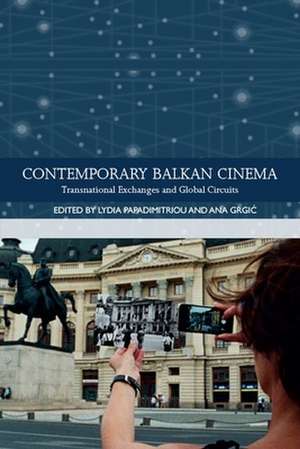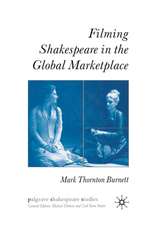Contemporary Balkan Cinema
Editat de Lydia Papadimitriou, Ana Grgicen Limba Engleză Hardback – 19 noi 2020
The first inclusive collection to examine post-2008 developments in Balkan cinema, this book brings together a number of international scholars to explore its industrial contexts and textual dimensions. With a focus on transnational links, global networks and cross-cultural exchanges, the book addresses the role of national and supranational institutions as well as film festival networks in supporting film production, distribution and reception. It also identifies key characteristics in the subject matter and aesthetics of Balkan films made since the global economic crisis. Through critical and comprehensive country profiles, and with a focus on smaller and underrepresented cinemas from Montenegro, Kosovo, North Macedonia and Albania, the collection argues for the continuing relevance of the concept of 'Balkan cinema'.
Preț: 555.56 lei
Preț vechi: 677.81 lei
-18% Nou
106.31€ • 110.28$ • 88.65£
Carte disponibilă
Livrare economică 06-20 martie
Specificații
ISBN-10: 1474458432
Pagini: 328
Ilustrații: 17 Tables, black and white; 49 Illustrations, black and white
Dimensiuni: 160 x 239 x 24 mm
Greutate: 0.64 kg
Editura: EDINBURGH UNIVERSITY PRESS
Descriere
The first inclusive collection to examine post-2008 developments in Balkan cinema, this book brings together a number of international scholars to explore its industrial contexts and textual dimensions. With a focus on transnational links, global networks and cross-cultural exchanges, the book addresses the role of national and supranational institutions as well as film festival networks in supporting film production, distribution and reception. It also identifies key characteristics in the subject matter and aesthetics of Balkan films made since the global economic crisis. Through critical and comprehensive country profiles, and with a focus on smaller and underrepresented cinemas from Montenegro, Kosovo, North Macedonia and Albania, the collection argues for the continuing relevance of the concept of 'Balkan cinema'.


























